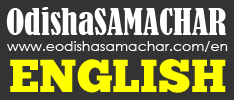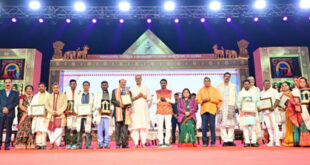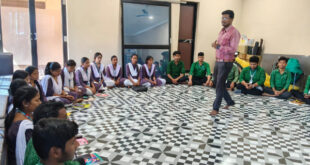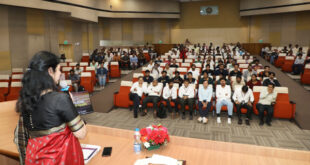By Special Correspondent
New Delhi, 8/5/2021 ( Odisha Samachar )-Export of iron ore pellets, apparently illegally, by private companies has snowballed into a serious crisis in India, the matter now in the Supreme Court.
The matter, after several cancellations, will be listed for online hearing in the country’s apex court after the summer holidays.
As per documents submitted in the Supreme Court court by a lawyer, Manohar Lal Sharma, the Central Bureau of Investigation (CBI), is investigating the case but the exports, claims Sharma, are continuing unabated despite several warnings from the government. No one knows how it is happening and Sharma – he has submitted all documents in the court – says this is in gross violation of the law and a government order that has banned export of iron ore using domestic railway freight.
Iron Ore pellet is high grade iron ore and which has been permitted for exports by the Bengaluru-based KIOCL, a public sector undertaking earlier known as Kudremukh Iron Ore Company. It has a pelletisation plant in Mangalore and an iron ore mine in Kudremukh.
In 1997 for the first time Iron Ore pellet was brought under the negative category of exports and was mentioned as a canalized product. But the private companies have exported more than 30000 crores pellets in last 6 years against the policy. “What is worrisome is that the Directorate General of Foreign Trade (DGFT) has not given any permission to them to export. The HSN code used for pellets is the same as 260LL210,” said an industry source.
Now, these very pellet exporters are steel companies which have demanded for 30 percent export duty on iron ore to make steel and on the other hand they have exported the same iron ore converting them into pellets. Iron Ore pellets are in no way any form of iron or steel but a mineral. What is interesting is that iron ore pellet export is banned because it is similar to iron ore exports.
The matter involves country’s some of the prominent names such as Jindal Saw, ArcelorMittal Nippon Steel, Essar Power, JSW Steel, NMDC, Rossoco International, Rungta Mines, Godawari Power, CBC India, among others.
According to the petitioner, the illegal pellet exports have caused immense loss to the country, leading to shortage of steel. Because of such shortage, many companies are forced to resort to steel imports. He claimed that in the last five years, scrap and steel worth 1.5 lac crores have been imported in India. If illegal pellet export would not have happened then this import would have reduced byAt least 1 lac crores, he argued.
The value of the said illegal pellets export is estimated at about Rs. 40,000 crores subject to penalty, amounting to Rs. 2,00,000 crores, is to be imposed and recovered from the exporters. Reports in Hindustan Times and Economic Times said during 2019-2020, Brahmani River Pellets has exported around 2.91 million tonnes, state-owned KIOCL has exported 1.95 million tonnes and JSPL has exported around 2.07 million tonnes. Rashmi Metaliks exported 5.3 lakhs tonnes and Jagannath Steel and Power exported 2.2. lakhs tons.
So what is on paper, and what is the law?
The government said in September last that there has been no change in the export policy of iron ore pellets not manufactured by Kudremukh Iron Ore Company Ltd, rebutting charges levelled by opposition parties, especially the Congress party, that Rs 40,000 crore worth of the product was exported in violation of rules by some private players, causing loss to the state exchequer.
Issuing a clarification, the Department of Commerce said the government notification dated September 26, 2014, was issued, as per which the export policy of iron ore pellets manufactured by Kudremukh Iron Ore Company Ltd (KIOCL) was amended to ‘free’ from ‘canalised’. In that notification, a policy condition was also added that the export of the pellets manufactured by KIOCL is to be done by KIOCL, Bangalore or any entity authorised by them, it said.
“However, there has been no amendment to the export policy of Iron Ore Pellets not manufactured by KIOCL,” it added.
The government also clarified that the legal opinion from Deputy Legal Advisor, Department of Legal Affairs “has not been endorsed” by the senior officials of the department and cannot be taken as the official legal view on this matter. “The matter for final legal position is under consideration,” it said.
According to the reports, the Opposition Congress party alleged that the Central government changed export laws to favour some corporates after it assumed power in 2014.
The commerce ministry, which deals with issues related to foreign trade, stated that as per the export policy, items not mentioned specifically in the export schedule are free for exports. “As per export data, iron ore pellets were taking place even prior to change in export duty in 2011-12…Thus, the linkage to changes in 2014 notification is misleading and is not backed by data,” it added. The ministry further said that the legal opinion from Deputy Legal Advisor, Department of Legal Affairs “has not been endorsed” by the senior officials of the department and cannot be taken as the official legal view on this matter. The matter for final legal position is under consideration,” it said.
Government officials said the Congress party’s claim that export duty on Iron ore pellets was removed in 2014 is not correct. It was the UPA government which had started the zero duty on pellets in 2011 itself. The issue of Kudremukh Iron Ore Company Limited being allowed to export iron ore pellets is also totally wrong, claimed government officials. The Ministry of Law and Justice has not made any such rule and referred the matter to Law and Justice for their opinion. The matter is further under consideration for the views of competent authority. No decision has been taken yet on barring other companies from exporting iron ore pellets.
On the issue of KIOCL being the only company exporting iron ore pellets before 2014, the government officials said export of iron ore pellets were never an exclusive right of KIOCL, and it was always free, after the sector was opened up in 1992 during economic linearisation. There was a restriction that only KIOCL could export pellets produced by it. This means, while others were allowed to export pellets freely, it was not the case for KIOCL. Actually, KIOCL did not export any pellet between August 2011 and August 2014, during the UPA rule.
In 2014, the NDA government changed the rule for KIOCL to export pellets manufactured by it. As per the amended rule, KIOCL was allowed to export its own manufactured iron ore pellets either by itself or through any entity authorized by them for the purpose. It didn’t mention anything about allowing private entities, which were already allowed. As can be seen in the notification, the earlier export policy for KIOCL was STE (State Trading Enterprise), which was changed to Free. This means, earlier KIOCL was allowed to export pellets only through PSUs, but now they are allowed to authorise any entity for this purpose. This rule is only about pellets made by KIOCL, this does not talk about any private company exporting pellets as alleged.
India exported 1,48,76,270 tonnes of these pellets during 2004-2014.
Advocate Sharma has served two legal notices to the concerned Secretaries of the concerned ministries to take action against illegal export of pellets and recover dues as per FTDR 1992 and Customs Act 1965. Incidentally, Sharma is the same advocate whose petition pushed the Supreme Court to cancel all coal blocks post the CAG report on the alleged scam. The apex court has already admitted one mining petition.
All eyes on the country’s apex court for the fate of allegedly unlawful transactions by companies such as Jindal Saw, ArcelorMittal Nippon Steel, Essar Power, JSW Steel, NMDC, Rossoco International, Rungta Mines, Godawari Power, CBC India, among others.
 Odisha Samachar Odisha Breaking News , Odisha Current News , Odisha News
Odisha Samachar Odisha Breaking News , Odisha Current News , Odisha News




